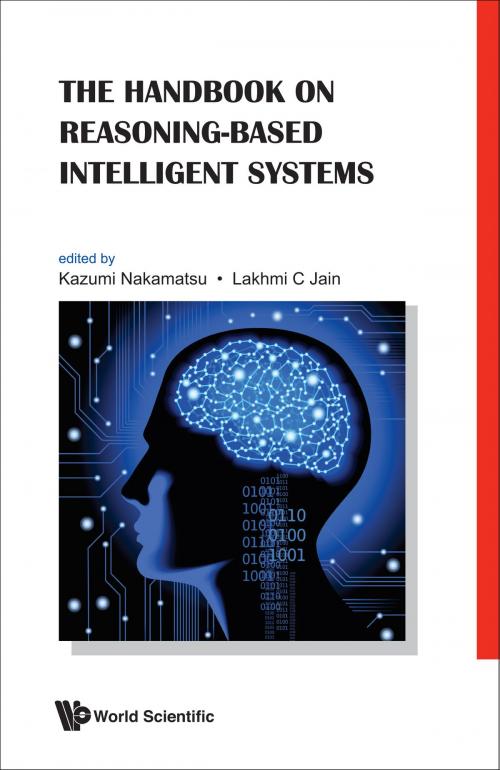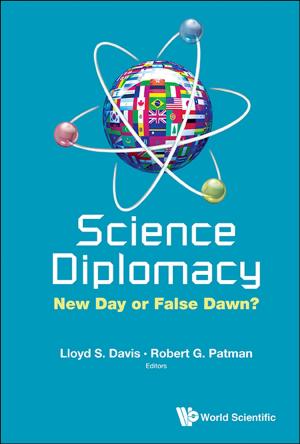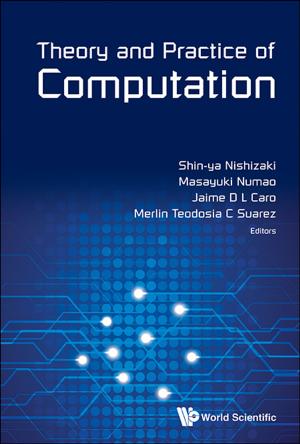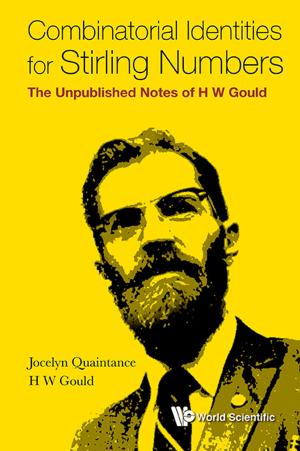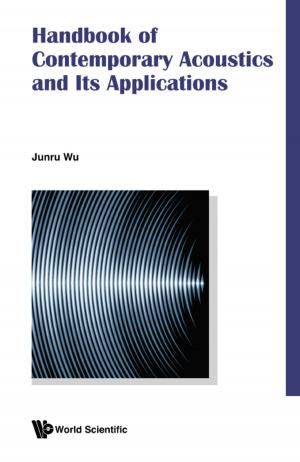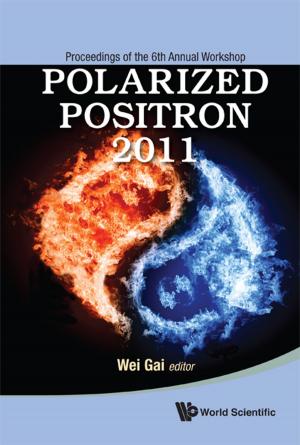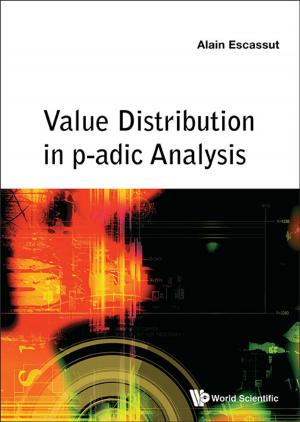The Handbook on Reasoning-Based Intelligent Systems
Nonfiction, Computers, Advanced Computing, Artificial Intelligence, Programming, Software Development, General Computing| Author: | Kazumi Nakamatsu, Lakhmi C Jain | ISBN: | 9789814489164 |
| Publisher: | World Scientific Publishing Company | Publication: | January 18, 2013 |
| Imprint: | WSPC | Language: | English |
| Author: | Kazumi Nakamatsu, Lakhmi C Jain |
| ISBN: | 9789814489164 |
| Publisher: | World Scientific Publishing Company |
| Publication: | January 18, 2013 |
| Imprint: | WSPC |
| Language: | English |
This book consists of various contributions in conjunction with the keywords “reasoning” and “intelligent systems”, which widely covers theoretical to practical aspects of intelligent systems. Therefore, it is suitable for researchers or graduate students who want to study intelligent systems generally.
Contents:
- Advances in Intelligent Systems (Lakhmi C Jain and Kazumi Nakamatsu)
- Stability, Chaos and Limit Cycles in Recurrent Cognitive Reasoning Systems (Aruna Chakraborty, Amit Konar, Pavel Bhowmik and Atulya K Nagar)
- Some Studies on Data Mining (Dilip Kumar Pratihar)
- Rough Non-Deterministic Information Analysis for Uncertain Information (Hiroshi Sakai, Hitomi Okuma, Mao Wu and Michinori Nakata)
- Metamathematical Limits to Computation (N C A da Costa and F A Doria)
- Hypothesis Refinement: Building Hypotheses in an Intelligent Agent System (Gauvain Bourgne, Nicolas Maudet and Suzanne Pinson)
- A Heuristic Algorithmic Procedure to Solve Allocation Problems with Fuzzy Evaluations (R Bartholo, C A N Cosenza, F A Doria and M R Doria)
- Non-Classical Logics and Intelligent Systems (Seiki Akama)
- A Paraconsistent Annotated Logic Program Before-After EVALPSN and Its Application (Kazumi Nakamatsu and Jair Minoro Abe)
- Inspecting and Preferring Abductive Models (Luís Moniz Pereira, Pierangelo Dell'Acqua, Alexandre Miguel Pinto and Gonçalo Lopes)
- Supervised Neural Network Learning: From Vectors to Graphs (Monica Bianchini, Marco Maggini and Lorenzo Sarti)
- Paraconsistent Artificial Neural Networks and Applications (Jair Minoro Abe and Kazumi Nakamatsu)
- Paraconsistent Annotated Evidential Logic Eτ and Applications in Automation and Robotics (Jair Minoro Abe and Kazumi Nakamatsu)
- Adaptive Intelligent Learning System for Online Learning Environments (Fatma Cemile Serçe, Ferda Nur Alpaslan and Lakhmi C Jain)
- Automatic Test Program Generation: How Artificial Evolution May Outperform Experience (Danilo Ravotto, Ernesto Sanchez and Giovanni Squillero)
- Discovery of Communications Patterns by the Use of Intelligent Reasoning (J Fulcher, M Zhang, Q Bai and F Ren)
- Adaptive Approach to Quality Enhancement and Storage of Signatures and Fingerprint Images (Roumen Kountchev)
- Knowledge Representation for Electronic Circuits in Logic Programming (Takushi Tanaka)
- An Intelligent CBR Model for Predicting Changes in Tropical Cyclones Intensities (James N K Liu, Simon C K Shiu, Jane You and Leon S K Law)
- Analysis of Sequential Data in Tool Manufacturing of Volkswagen AG (Kemal Ince, Thomas Schneider and Frank Klawonn)
- Reasoning-Based Artificial Agents in Agent-Based Computational Economics (Shu-Heng Chen)
- Reasoning and Knowledge Acquisition from Medical Database Using Lattice SOM and Tree Structure SOM (Takumi Ichimura, Takashi Yamaguchi and Kenneth James Mackin)
- Approximate Processing in Medical Diagnosis by Means of Deductive Agents (G Fenza, D Furno, V Loia and S Senatore)
Readership: Graduate students, software engineers and researchers in theoretical computer science, artificial intelligence and neural networks.
Key Features:
- Unfamiliar logics and their applications are treated
- Different types of intelligent systems are described from the various viewpoints
This book consists of various contributions in conjunction with the keywords “reasoning” and “intelligent systems”, which widely covers theoretical to practical aspects of intelligent systems. Therefore, it is suitable for researchers or graduate students who want to study intelligent systems generally.
Contents:
- Advances in Intelligent Systems (Lakhmi C Jain and Kazumi Nakamatsu)
- Stability, Chaos and Limit Cycles in Recurrent Cognitive Reasoning Systems (Aruna Chakraborty, Amit Konar, Pavel Bhowmik and Atulya K Nagar)
- Some Studies on Data Mining (Dilip Kumar Pratihar)
- Rough Non-Deterministic Information Analysis for Uncertain Information (Hiroshi Sakai, Hitomi Okuma, Mao Wu and Michinori Nakata)
- Metamathematical Limits to Computation (N C A da Costa and F A Doria)
- Hypothesis Refinement: Building Hypotheses in an Intelligent Agent System (Gauvain Bourgne, Nicolas Maudet and Suzanne Pinson)
- A Heuristic Algorithmic Procedure to Solve Allocation Problems with Fuzzy Evaluations (R Bartholo, C A N Cosenza, F A Doria and M R Doria)
- Non-Classical Logics and Intelligent Systems (Seiki Akama)
- A Paraconsistent Annotated Logic Program Before-After EVALPSN and Its Application (Kazumi Nakamatsu and Jair Minoro Abe)
- Inspecting and Preferring Abductive Models (Luís Moniz Pereira, Pierangelo Dell'Acqua, Alexandre Miguel Pinto and Gonçalo Lopes)
- Supervised Neural Network Learning: From Vectors to Graphs (Monica Bianchini, Marco Maggini and Lorenzo Sarti)
- Paraconsistent Artificial Neural Networks and Applications (Jair Minoro Abe and Kazumi Nakamatsu)
- Paraconsistent Annotated Evidential Logic Eτ and Applications in Automation and Robotics (Jair Minoro Abe and Kazumi Nakamatsu)
- Adaptive Intelligent Learning System for Online Learning Environments (Fatma Cemile Serçe, Ferda Nur Alpaslan and Lakhmi C Jain)
- Automatic Test Program Generation: How Artificial Evolution May Outperform Experience (Danilo Ravotto, Ernesto Sanchez and Giovanni Squillero)
- Discovery of Communications Patterns by the Use of Intelligent Reasoning (J Fulcher, M Zhang, Q Bai and F Ren)
- Adaptive Approach to Quality Enhancement and Storage of Signatures and Fingerprint Images (Roumen Kountchev)
- Knowledge Representation for Electronic Circuits in Logic Programming (Takushi Tanaka)
- An Intelligent CBR Model for Predicting Changes in Tropical Cyclones Intensities (James N K Liu, Simon C K Shiu, Jane You and Leon S K Law)
- Analysis of Sequential Data in Tool Manufacturing of Volkswagen AG (Kemal Ince, Thomas Schneider and Frank Klawonn)
- Reasoning-Based Artificial Agents in Agent-Based Computational Economics (Shu-Heng Chen)
- Reasoning and Knowledge Acquisition from Medical Database Using Lattice SOM and Tree Structure SOM (Takumi Ichimura, Takashi Yamaguchi and Kenneth James Mackin)
- Approximate Processing in Medical Diagnosis by Means of Deductive Agents (G Fenza, D Furno, V Loia and S Senatore)
Readership: Graduate students, software engineers and researchers in theoretical computer science, artificial intelligence and neural networks.
Key Features:
- Unfamiliar logics and their applications are treated
- Different types of intelligent systems are described from the various viewpoints
